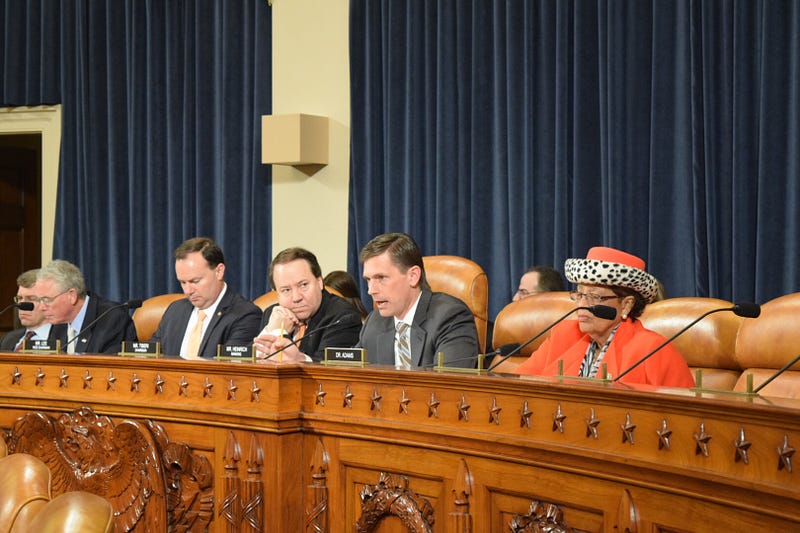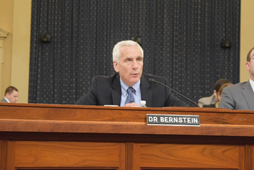By the Democratic Staff of the Joint Economic Committee
On Wednesday, the Joint Economic Committee held its first hearing of this Congress entitled, “The Decline of Economic Opportunity in the United States: Causes and Consequences.” Ranking Member Martin Heinrich (D-NM) and Committee Members heard from several witnesses on how to improve the U.S. economy so more American families that feel left behind can succeed.

Ranking Member Heinrich highlighted in his opening statement that opportunity barriers are preventing families across the country from getting ahead in today’s economy?—?including sending their children to college, launching new businesses, and the ability to retire with peace of mind. Click here to watch a video of Ranking Member Heinrich’s opening remarks at the hearing, and here to read his remarks.

Dr. Jared Bernstein, Senior Fellow at the Center on Budget and Policy Priorities, was one of the witnesses at the hearing. In his testimony, Dr. Bernstein discussed policy solutions targeting opportunity barriers such as investing in infrastructure, direct job creation, helping small manufacturers, and housing.
You can read a transcript of Dr. Bernstein’s testimony here and click this link to watch the video.
More Highlights from Joint Economic Committee Democratic Members and Witness Testimony:
Sen. Klobuchar (D-MN) on the need for immigrant workers in rural areas:
Dr. Bernstein: “…This is a critical workforce?—?a critical part of the workforce, in fact, an essential growing part of the workforce if we would allow it to grow. One of the reasons our macro economy is constrained…is because our labor supply is growing too slowly… One of the ways we’ve often dealt with that is being welcoming towards immigrants. And so at the micro level, which you’re describing, it’s critical for employers to have that supply, but at the macro level, it’s also really important. So we are definitely shooting ourselves in the feet…while I very much take and endorse John’s point about [the need] of entrepreneurs, that’s not the only immigrants we are interested in.”
Rep. Carolyn Maloney (D-NY) on what impact equal pay for women have on the economy:
Dr. Bernstein: “This would help both on the family well-being and antipoverty as well as the broader macro economy particularly if we’re talking about folks on the bottom half of the pay scale. They spend their earnings, so when you pay women 70 or 75 cents on the dollar that means it’s less economic activity, less consumption.”
Dr. Timothy Kane, JP Conte Fellow on Immigration Studies at the Hoover Institution Stanford, on investing in infrastructure and public lands:
Dr. Kane: “…Some of the most important infrastructure we have are our national parks, for example, and we don’t quantify those. And we are guilty as economists?—?we don’t quantify some of the intangible values in life.”
Rep. Alma Adams (D-NC) on importance of reducing burden students’ face in completing their education and ensuring they have the tools to break through opportunity barriers:
Dr. Bernstein: “…The low level of investment in young children in my view directly connects to the imbalance in access and completion of higher education. This starts with early childhood education. There is no bigger policy mistake we make in this country then in under-investing or hardly investing at all. This is not a conservative or liberal result. … We are talking about helping people get to college. To me, that’s breaking down an opportunity barrier. ”
Prepared by Joint Economic Committee Democrats, 4/6/2017